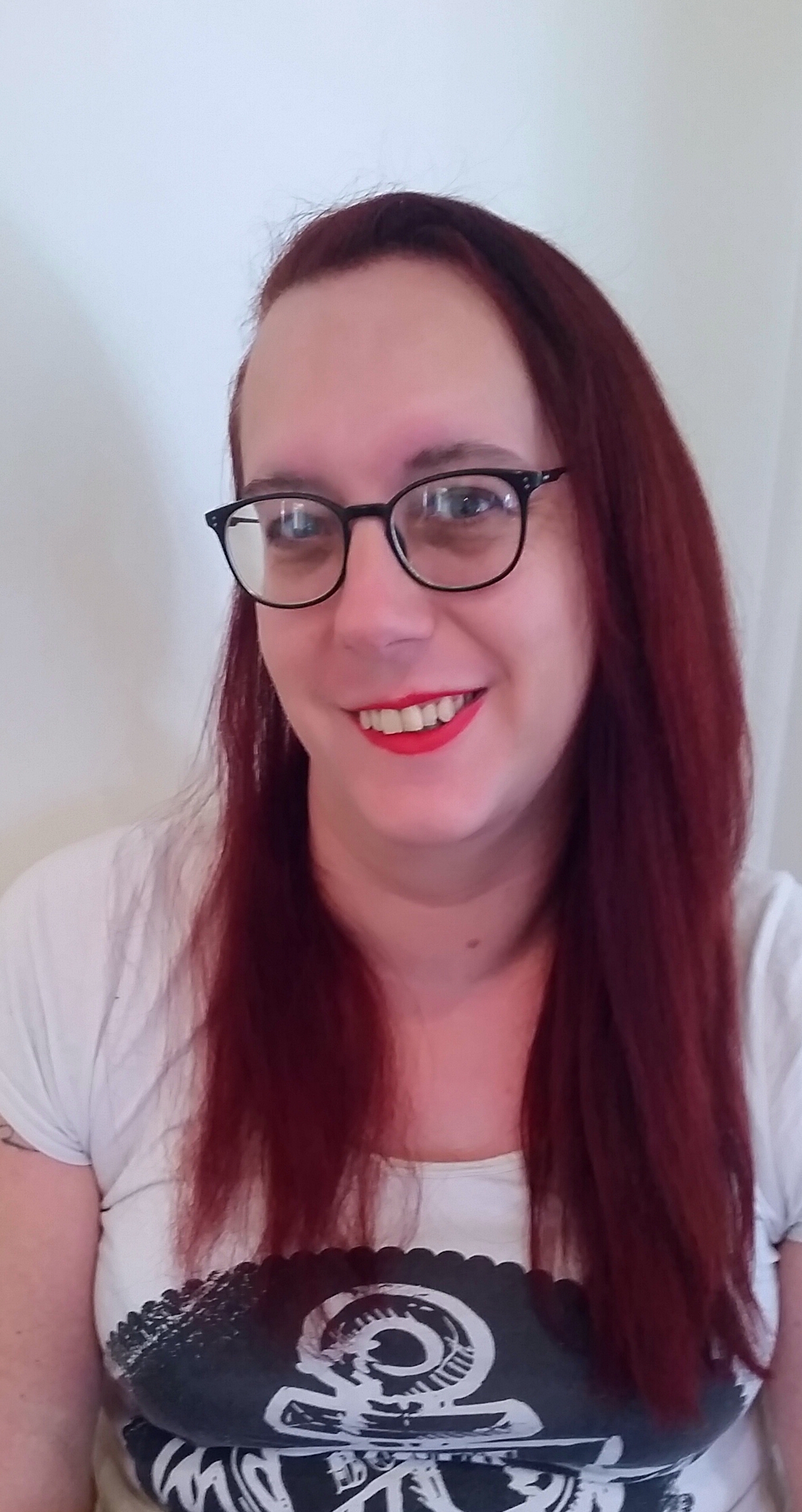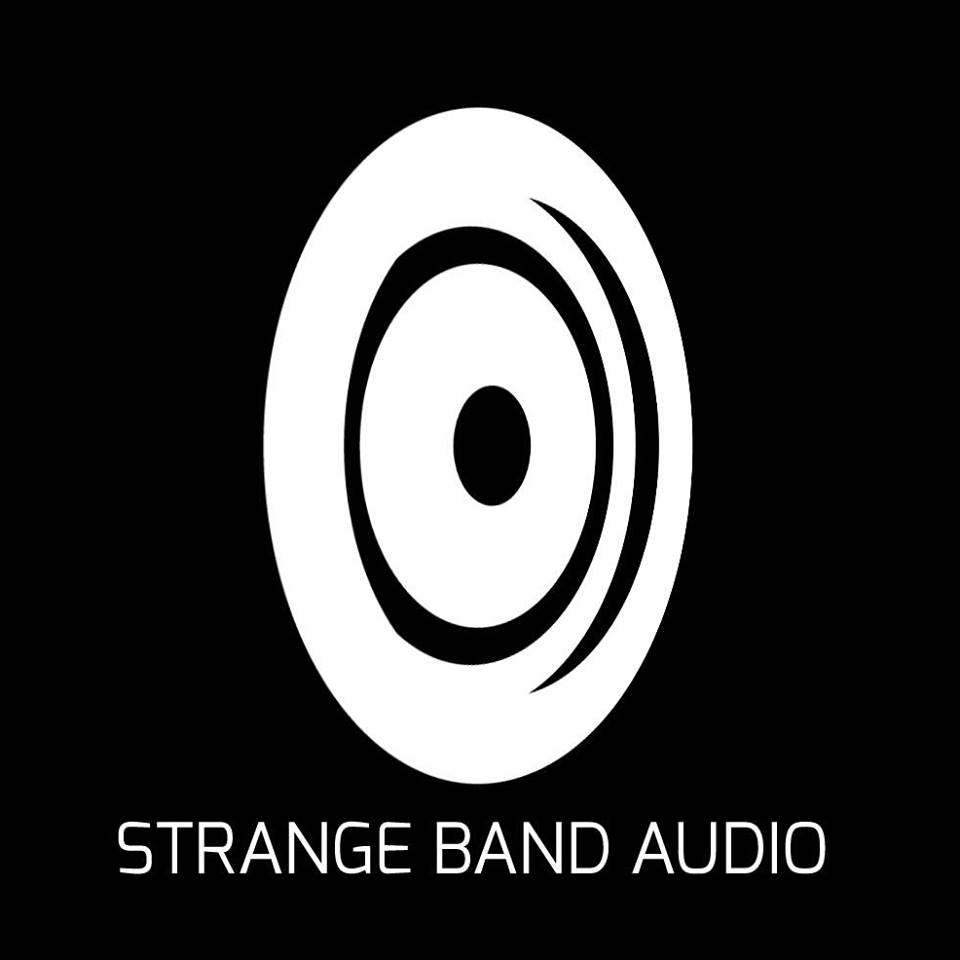Jody Toomey

- Role: Director
- Company: Strange Band Audio
- Location: Sydney
Queerly Represent Me spoke with Jody Toomey, director of Strange Band Audio.
QRM: Can you tell us a little bit about who you are and what you do in the games industry?
Jody: I'm a music/sound effects producer at Strange Band Audio. We provide audio production and consultation services to the games industry. We use the concept of the sonic palette to advocate for the early integration of audio production in to the development process.
QRM: How long have you been involved in the game industry, and what projects have you worked on? What are you working on currently?
Jody: I've been producing music for about 20 years and moved in to the games industry a couple of years ago after meeting my partner, who is a games designer. My main work at the moment is focused on a workflow system that allows audio, using the concept of the sonic palette, to be integrated in to the design process from the very beginning in the same way as art and narrative. Indeed, audio has a great deal of influence on them and vice versa. I'm testing this by developing all the audio for AIE Sydney’s second year students major projects which is going very well.
I presented this concept and its findings at the New Zealand Game Developers Conference in September, 2017.
QRM: What inspired you to get started in the games industry?
Jody: Honestly, my partner. She had a project to do for her diploma that required sound, so I did it. Next thing I know I've got her colleagues asking me if I can do their audio. The more I spoke to them, the more I see the big downfall in relation to audio in game development. Too often it's left until late in development and then farmed out to a contractor with minimal reference material leaving an often less-than-satisfactory product. So I got a bee in my bonnet about it and set out to change it by bringing audio into the dev process from the very beginning.
On top of that, being a producer for so long, one moment that inspired me was when Quake was released. I'm a huge Nine Inch Nails fan and seeing Trent Reznor’s music AND sound design in a game was eye opening for me.
QRM: In what ways do you feel your experiences as a queer person manifest in the games you work on, and influence the work you do?
Jody: This is a bit of an odd question for me. The teams I'm working closely with are all, largely, queer themselves. I feel it's given us a sense of camaraderie and commonality to our work. I feel like our collective queerness has given us a desire to tell unconventional stories. Perhaps to represent the (currently) under represented. Certainly with my own personal music productions, i.e. stuff not for games, my experiences, good or bad, play in to that creativity quite heavily. My experience as a trans woman are inseparable from my music.
QRM: Do you have a favourite queer character—in games or media more generally? If so, what is it about them that makes them your favourite?
Question asked by @kamienw.
Jody: Not so much in games, but I love Jamie Clayton's Nomi Marks in Sense8 and Laverne Cox's Sophia Bursett in Orange is The New Black. As backstory and the characters get unfolded throughout the respective series, you get a lot of things to relate to and they both provide an honest portrayal of what it's like to be trans in this world. Almost like, "Fuck yeah, it can be shit sometimes but it's so worth it," and it shows in the writing and portrayals. I love the honesty of both characters and the determination. Transition is hard. Really fucking hard. There can be nothing but setbacks and drama but slowly, slowly, we get to where we want to be and it's encouraging to see such wonderful representation of characters overcoming adversity, which is something every queer person can relate to. Plus I love Sense8 showing that trans women can actually be lesbians, and usually are, rather than some "but she had a dick" punchline for cis-het white dudes.
QRM: Have you ever encountered roadblocks in trying to include queer characters in games? What do you think is preventing greater diversity within games?
Question asked by @dustinalex91.
Jody: I feel like developers have to be slightly subtle about introducing queer characters for two reasons. Firstly, it can be so badly handled as shown by Bioware in Mass Effect: Andromeda. It was great that they included a trans character to begin with but that introduction was truly appalling. Props to them though for correcting it the way they did. The other reason is the potential backlash from the market as fans start claiming some form of ownership of something they see as 'theirs'. It can be a very fine line between well done and totally screwed up, usually because it's been handled by people who aren't queer, by and large.
That said, as more queer and diverse indie teams start shoving projects out there that DO have the diversity and representation, the more we will see this being well reflected in AAA titles.

QRM: Why do you think it is important that queer audiences are able to see themselves represented in the games they play, and in the developers who make the games they see? What can we do to improve the industry for queer audiences and devs?
Jody: For the same reason I gave about queer characters. Queer people, trans, gay, bi, whichever desperately want to see characters like themselves in games and other media. It gives us something to relate to, to show us that we really are not alone, there are others out there like us. We are fully developed human beings, not someone’s caricature or fetish, and we want to see people like us being awesome in games.
QRM: Have you ever mentored somebody in your role in games, or been mentored? If so, what made these experiences worthwhile for you?
Question asked by @pepelanova.
Jody: I'm an older trans woman with a lifetime of experience working for a living in various fields. I'm working closely with a lot of students who, in most cases, are at least 20 years my junior. While it's not a formal mentor thing it's impossible not to have them asking questions of me and picking my brain about my experience and skills. It's been wonderful to see them overcome issues and grow and develop as both people and professionals. I'm really proud to know those guys.
QRM: In what ways can non-queer folk increase and support queer diversity present within games, as well as in the industry more broadly? How can we all work to support intersectional approaches to diversity, and why is this important?
Jody: Listen when we talk. Take it on board and don't dismiss it. Put your privilege away for a moment and feel what we say. Connect with it. For we are here. You work alongside us, you go drinking with us, but too often you have no idea. Just. Fucking. Listen.
QRM: Is there a message that you would like to share with the queer game players, game studies researchers, and other interested folks who comprise the Queerly Represent Me community?
Jody: Never stop creating. Never stop being yourself. Never let them get you down. For you are not alone, we are here with you and we've got your back.
*
You can find Jody at a bunch of upcoming speaking arrangements, including talks organised by Girl Geek Academy, PAX Australia, Sydney Gaymers, and Beer n Pixels.
You can check out Strange Band Audio on Facebook and Twitter.
